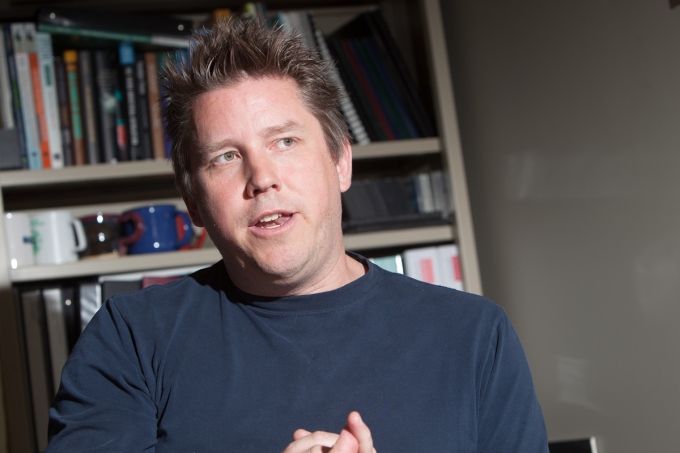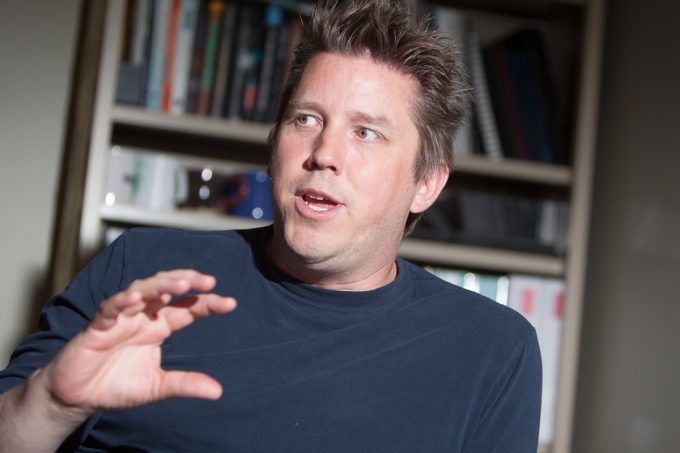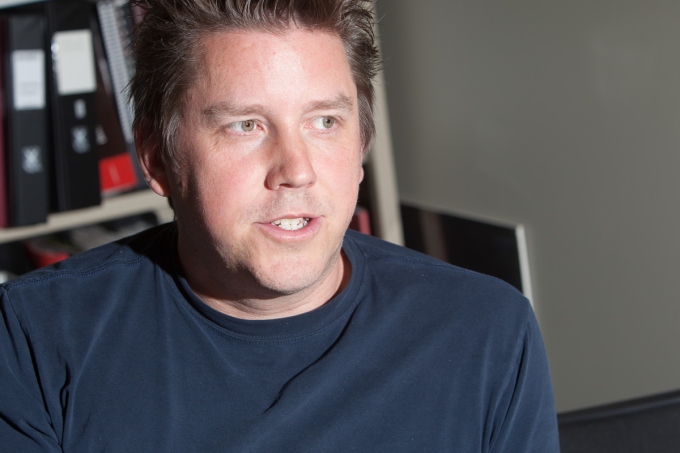Passionate about protecting our planet
May 20, 2014
Share
Queen’s University Communications Officer Anne Craig caught up with Warren Mabee as he prepared his presentation for the What Matters Now Kingston event on Wednesday, May 21. The event features five of Ontario’s leading researchers pitching why their research is important to a Dragon’s Den-type panel. Dr. Mabee’s research focus is renewable energy.

AC: Why are you so passionate about renewable energy?
WM: I believe that the most important thing in reducing our footprint on the planet is to shift to sustainable energy systems. This will require us to find lots of ways to conserve energy – we can’t possibly replace all of the fossil power out there with renewables – and will drive innovation and create new opportunities for Canadians. As a country, we have the resources to be an early adopter of these systems, and I want to see us setting the course for other countries to follow.
AC: What is the first step we need to take towards using renewable energy instead of fossil fuels?
WM: Continuing to expand the use of renewable energy without driving costs up too high will require relatively cheap biomass feedstocks. The best feedstocks we can get are those materials which are found in our waste streams. These range from the cheapest option, industrial wastes left over from processing - concentrated at factories and easy to collect - through residential, agricultural, and finally residues from forest operations, which are the most dispersed and probably most expensive.

AC: One of your focuses is agricultural biomass. What is it and how can it be used effectively as a renewable energy source?
WM: Agricultural biomass is the stuff we don’t eat - straw from wheat or stover from corn. Right now, it is left on the field or collected for use as livestock bedding. A good amount of agricultural residue is essentially wasted; studies have shown that recovering a portion of the residue from the field can be done sustainably, providing feedstock for materials, chemicals, fuels and energy.
AC: What is the most effective way to move towards sustainable energy production and storage?
WM: We’ve already begun the shift towards more sustainable energy production. To continue this move, we need to focus on getting the economics right. Too much renewable power requires heavy subsidy today, but we are seeing vast improvements in technology costs and process efficiencies which mean that subsidies are becoming less necessary. Existing ethanol from corn and wheat, for instance, is far more competitive today than it once was.

AC: What are some recent renewable energy success stories?